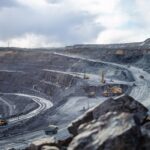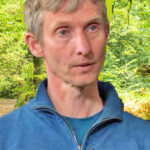Indur Goklany: een rasoptimist met keiharde argumenten.
Hond bijt man is geen nieuws. Man bijt hond daarentegen wèl. In de economie kennen we de wet van Gresham: ‘Bad money drives out good money.’ Het lijkt wel of dat ook voor het nieuws geldt: slecht nieuws verdringt goed nieuws.
Dagelijks schotelen de media ons een overvloed aan ellende voor: recentelijk bootvluchtelingen, moordpartijen, oorlogen, Grexits, kelderende beurskoersen in China, en noem maar op. Sinds het eerste rapport aan de Club van Rome, ‘Grenzen aan de groei’, neemt ook de milieuproblematiek een prominente plaats in de niet te stelpen stroom van onheilstijdingen.
Dit heeft bij velen het idee doen postvatten dat het de verkeerde kant op gaat met de wereld en de mensheid.
‘Maar een mens lijdt dikwijls nog het meest door het lijden dat hij vreest, doch dat nooit op zal dagen. Zo heeft men meer te dragen, dan God te dragen geeft.’ (Nic. Beets)
In zijn opus magnum, ‘The Skeptical Environmentalist’, noemde Bjørn Lomborg dat de litanie van milieuangsten, terwijl de Amerikaanse politicoloog, wijlen Aaron Wildavsky, ‘Global warming the mother of all environmental scares’ noemde. Zij hebben het geweten! Zij kregen een tsunami van groenbevlogenen over zich heen die hen op allerlei manieren hebben proberen af te branden.
Even een terzijde. Een psychologieprofessor placht zijn colleges te beginnen met een kleine test. Hij pakte een krijtje, zette daarmee een witte punt op het zwarte bord en vroeg zijn studenten wat zij zagen. Zonder uitzondering antwoordden zij: ‘een witte punt’. De professor veinsde vervolgens verbazing en vroeg: ‘Maar ziet u dat grote zwarte bord dan niet?’
De eerste systematische verhandeling dat het helemaal niet zo slecht met de wereld ging, die ik in een grijs verleden onder ogen kreeg, was die van (wijlen) Julian Simon: ‘Hoodwinking the Nation’. Hierin toonde hij op basis van tal van indices uit algemeen beschikbare statistieken onomstotelijk aan, dat het steeds beter ging met de mensheid. De (toen nog) groene activist, professor en statisticus, Bjørn Lomborg, kon dat niet geloven en probeerde samen met zijn studenten het werk van Simon te weerleggen. Dat lukte niet en dat bracht hem tot het schrijven van ‘The Skeptical Environmentalist’.
Meer recentelijk heeft ook Matt Ridley, met zijn ‘The Rational Optmist’, zich bij deze toekomstoptimisten gevoegd. Zie ook hier.
Iemand die al langer de erfenis van Julian Simon levend houdt, maar minder bekend is, is Indur Goklany. Zijn laatste boek is ‘The Improving State of the World.’
Onder de titel, ‘The human triumph from fossil fuels’, schreef Indur Goklany, onlangs voor de Canadese ‘Financial Post’:
The Pope’s prescriptions would reduce human well-being and undermine the environment …
Al Gore is in the Vatican camp on climate. Pope Francis’ recent encyclical on the environment endorsed the notions ”that it is not possible to sustain the present level of consumption in developed countries and wealthier sectors of society,” that “exploitation of the planet has already exceeded acceptable limits,” and that each year thousands of species are being lost. Based on these, it endorsed “changes of lifestyle, production and consumption, in order to combat … warming,” drastic reductions in carbon dioxide and other emissions, and redistribution of wealth.
Unfortunately, the Vatican has been laid astray by its advisors’ statement entitled, Climate Change and the Common Good: A Statement of the Problem and the Demand for Transformative Solutions. It makes claims that contradict empirical facts, and are ethically dubious.
Fossil fuels have increased the world’s sustainability and resilience
Specifically, the advisors claim sustainability and resilience are being destroyed by over—consumption and that fossil fuels are to blame. Indeed, human numbers and carbon dioxide emissions have never been higher, but neither has human well-being! In fact, the average person has never lived longer, been healthier or wealthier. Living standards are at their highest ever; poverty, hunger, malnutrition, and mortality from vector—borne diseases and extreme events — all indicators that global warming is supposed to worsen — are at record lows. There is no indication that these trends are being reversed.
Fossil fuels have not only benefited humanity but also the rest of nature, because fossil fuels have allowed more intensive use of land, thus limiting the amount of wilderness that has to be diverted to agricultural use. Consequently, conversion of wildland to farm land has almost peaked worldwide, allowing some societies to reserve land for conservation. …
Thus greater fossil-fuel use has been accompanied by advances in both human well-being and terrestrial biosphere’s ability to sustain biomass. That is, fossil fuels have increased the world’s sustainability and resilience, diametrically opposite to the advisors’ claims.
Also contrary to the advisors’ claims, inequality has shrunk among the world’s population in recent decades. Nor is there any empirical evidence for the claim that agriculture is “doubtless causing” hundreds of thousands if not millions of extinctions.
The advisors’ assertion that fossil-fuel use poses existential risks for the poor and future generations necessarily rests on models of future impacts of global warming. But impact models use climate models that overestimate global warming two— to four—fold. Neither climate nor impact models have been validated using external data, climate models often contradict each other regarding whether future precipitation will increase (or not) at regional and local scales, and impact models understate the increased adaptability of future generations, who will be wealthier and technologically-more sophisticated than we are.
The advisors’ “transformative solutions’’ are based on the delusion that economic alternatives to cheap fossil fuels are widely available, a notion belied by the government mandates and subsidies that prop up these alternative energy sources around the world. These purported solutions would therefore be counterproductive for both humanity and the rest of nature. They would slow the ongoing broad advance in human wellbeing, retard poverty reduction, and reduce the ability to adapt and cope with adversity in general and climate change in particular, especially harming the poor. They would also reduce the future productivity of the terrestrial biosphere, increasing pressure on species and ecosystems.
Lees verder hier.
Aldus de analyse van Indur Goklany – en in tegenstelling tot Ladauto Si – niet gebaseerd op geloofsartikelen, die niets met de werkelijkheid hebben te maken, maar op feiten.
Voor mijn eerdere bijdragen over klimaat en aanverwante zaken zie hier, hier, hier, hier en hier.






It is possible that mankind is on the threshold of a golden age; but, if so, it will be necessary first to slay the dragon that guards the door, and this dragon is religion. – Bertrand Russell
Maar ja, Russell had natuurlijk nog nooit gehoord van eco/klimaat activisme.
@Andre: Religie is bindmiddel en bedwelmingsmiddel. Beide zullen altijd populair blijven, helaas?
http://www.scp.nl/Nieuws/Oudere_nieuwsberichten/Nieuws_uit_2011/De_kerken_lopen_leeg_maar_de_drang_naar_het_religieuze_is_onblusbaar
Noami Klein mag de Paus en RK-kerk over klimaat-religie indoctrineren. http://www.welingelichtekringen.nl/politiek/469664/de-paus-trekt-naomi-klein-aan-als-hulp-bij-klimaatdebat.html
Turris, dank
Ik zou de quote van Russell als volgt willen veralgemeniseren:
It is possible that mankind is on the threshold of a golden age; but, if so, it will be necessary first to slay the dragon that guards the door, and this dragon is the division of mankind in members of the herd, the sheppards of the herd and their proclaimed enemies of the herd.